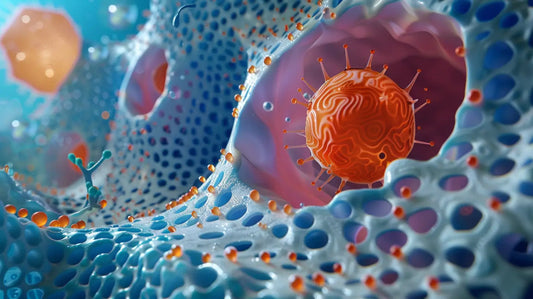Testing Your Hydrogen Water Generator: Insights and Troubleshooting
UpdatedOur Commitment to Accuracy and Objectivity
Ocemida is committed to delivering reliable and unbiased information. Our editorial team, comprised of experienced editors and medical experts, meticulously reviews every article and guide to ensure the content is accurate, up-to-date, and free from bias.
Rigorous Fact-Checking Process
To uphold the highest standards of accuracy, we adhere to the following fact-checking guidelines:
Trusted Sources: We only cite reputable sources, such as peer-reviewed journals, government reports, academic and medical associations, and interviews with credentialed healthcare professionals.
Evidence-Based: All scientific claims and data are supported by at least one credible source. Each article includes a comprehensive bibliography with full citations and links to the original sources.
Internal Linking: While we may include internal links to other relevant Ocemida pages for better navigation, these links are never used as primary sources for scientific information.
Expert Review: A member of our medical and scientific expert team provides a final review of the content and cited sources for all articles and product reviews related to medical and health topics.
By following these rigorous standards, Ocemida strives to provide readers with reliable and informative content.
Share with a friend
Hydrogen water has been gaining popularity for its potential health benefits, but measuring hydrogen concentration in water can be challenging, even under laboratory conditions. While your initial readings might seem concerning, they don't necessarily indicate a defective unit.
If you've recently purchased a hydrogen water generator and find that a hydrogen water test shows below 1.6ppm, you might be concerned about the device's efficacy. However, before jumping to conclusions about a defective unit, consider the following points:
-
The Unreliability of At-Home H2 Testers:
It's crucial to acknowledge that at-home hydrogen testers, like those using methylene blue drops, can be unreliable. These drops are prone to oxidation and have a limited shelf life, which can affect their accuracy. Such factors can lead to misleading readings, suggesting lower hydrogen levels than are present in the water.
-
Membrane Activation in New Generators:
The performance of your hydrogen water generator heavily depends on the condition of its membrane. In new units, the membrane might not be fully activated initially. This activation typically improves over 10 consecutive days of use. If you observe large bubbles along with tiny ones, it's a sign that the membrane is still activating. To expedite this process, soak the membrane in warm water and run multiple cycles a day. This step is crucial for achieving optimal hydrogen production.
-
Importance of High Pressure:
Another critical factor is ensuring that the cap of the generator is securely closed during operation. The generation and dissolution of hydrogen in water require a high-pressure environment. If the cap is not properly sealed, the pressure won't build, and less hydrogen will dissolve in the water. Running two cycles with a closed cap on a fully activated membrane should yield higher hydrogen concentrations.
-
Optimal Water Temperature:
The temperature of the water you use can also influence hydrogen concentration. Cold water is preferable as it aids in retaining more hydrogen. Conversely, using warm water or disturbing the water through shaking or pouring from a height can cause hydrogen to escape, leading to lower readings.
-
Gas Chromatography: The Gold Standard for Measurement
To accurately measure hydrogen concentration in water, gas chromatography is the most reliable method. This technique involves separating and analyzing the components of a sample mixture. In the case of hydrogen water, gas chromatography can isolate and quantify the hydrogen gas present, providing a precise measurement. While not readily available for home use, this method is employed in laboratories and research settings to ensure accurate results.
The Ocemida hydrogen water bottles are tested and certified by both IHSA (International Hydrogen Standards Association) and USA EPA (U.S. Environmental Protection Agency).

-
ORP Meters: Misleading Marketing for Hydrogen Testing
Many ORP (Oxidation-Reduction Potential) meters sold on Amazon are marketed as hydrogen testers, but they do not directly measure hydrogen levels in water. ORP measures the ability of a substance to oxidize or reduce another substance, which is not a direct indicator of hydrogen concentration. While hydrogen-rich water may exhibit a negative ORP due to its antioxidant properties, other factors like pH and dissolved minerals can also influence ORP readings. Therefore, relying solely on ORP meters to assess hydrogen levels can be misleading and inaccurate.
Furthermore, even high-end ORP meters like the Trustlex 2000, which costs over $800, have limitations in measuring hydrogen concentration. These meters are typically designed to measure ORP values in millivolts (mV) and often have a maximum detection range of around 2000 parts per billion (ppb) for dissolved hydrogen. While this might be sufficient for some applications, it's important to note that hydrogen water generators can potentially produce higher concentrations, exceeding the measurement capabilities of these meters.
Additional Tips for Optimal Use:
- Regular Maintenance: Regularly clean your generator to ensure it's free of impurities that could hinder hydrogen production.
- Correct Water Quality: Use clean, preferably distilled or filtered water to avoid contaminants that might affect hydrogen generation.
- Patience and Consistency: Give your generator time to reach its full potential. Consistent use over several days is often key to achieving optimal performance.
By understanding the nuances of how hydrogen water generators work and implementing these tips, you can enhance the performance of your device and enjoy the benefits of hydrogen-rich water.
Table of Contents










































